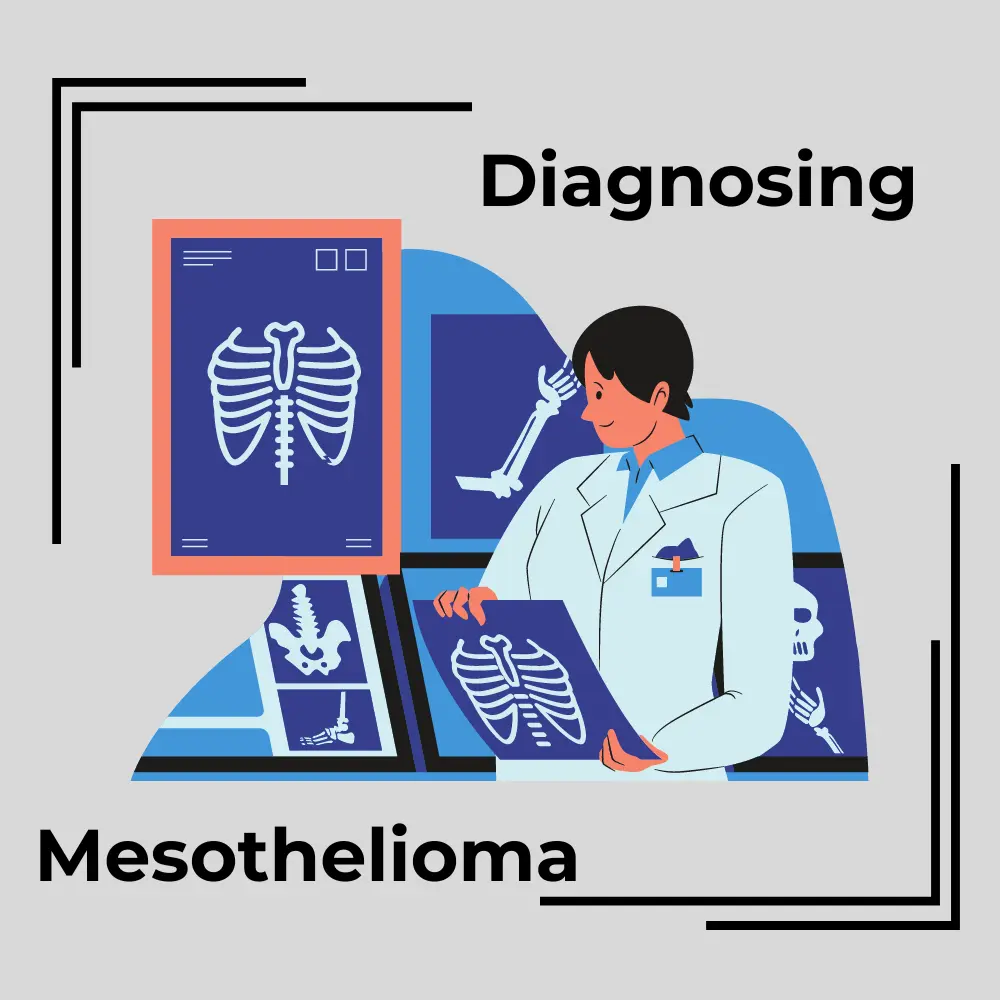It can be very difficult to obtain a correct mesothelioma diagnosis. There has been research done and guidelines put in place to streamline the process of diagnosis. It is vitally important that someone who is experiencing symptoms of mesothelioma get tested as soon as possible. The earlier the diagnosis, the better the prognosis and the more potential for a better quality of life for the victim. Some symptoms of mesothelioma include shortness of breath, coughing, loss of appetite, unexplained weight loss, and fatigue.
The World Health Organization classifies three different types of mesothelioma: epithelioid, sarcomatoid, and biphasic. Mesothelioma can be hard to diagnose because of the lack of specific symptoms and the lack of specific biomarkers. Symptoms of mesothelioma are similar to other respiratory diseases, such as asthma, so it is common for the cancer to be undiagnosed or misdiagnosed for quite some time.
Steps to Diagnosis
Usually, when a patient initially reports symptoms, the first step to a mesothelioma diagnosis is an X-Ray done by a primary care physician. If an unusual pleurisy, or inflammation of the pleura, is observed, the patient should then be sent to a pulmonologist for further testing. At this point, it is important that the patient try to identify any possible exposures to asbestos that they may have had, either from direct occupational exposure or through secondhand exposure from a family member.
Mesothelioma Diagnosis Through Tests
If a patient is seen to have a pleural effusion after a chest radiograph is performed, the next step is usually pleural ultrasonography. Another option is using a CT scan with contrast, which is written in the British guideline for obtaining a mesothelioma diagnosis. An MRI can be useful to determine the thickness of the tumor and whether it has moved to the diaphragm or the chest wall. A mesothelioma diagnosis should not be made based only on cytology, or the study of microscopic cells and cell structures.

In the European guideline for diagnosing mesothelioma, it is recommended that biopsies are obtained either through thoracoscopy or a CT-guided biopsy.
Medscape lists the guidelines for diagnosing mesothelioma as follows:
- Chest CT with contrast
- Thoracentesis for cytologic assessment
- Pleural biopsy
The American Society of Clinical Oncology as well as the British Thoracic Society both agree that cytology alone should not be used to make a mesothelioma diagnosis. Both societies also believe that it is important to report the subtype of mesothelioma as epithelioid, sarcomatoid, and biphasic mesothelioma have different prognoses and therefore different treatment plans could be needed.
If you or a loved one has received a diagnosis of mesothelioma or another asbestos-related disease, please call (800) 505-6000 for more information. We are here to help.
https://allen.silverchair-cdn.com